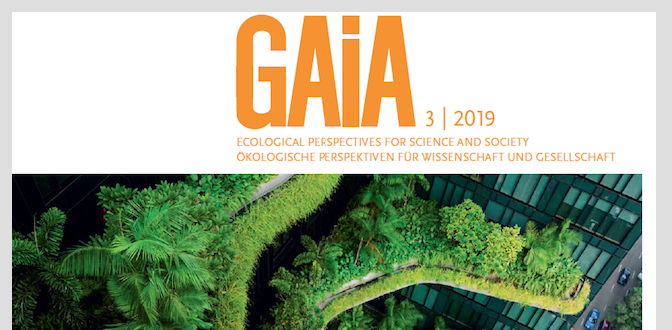In our newest publication in GAIA (GAIA 28/3/2019) based on a Delphi study we summarized opportunities and challenges of our educational model: Real-world experience through secondments and co-creation of knowledge with policy organizations facilitates boundary crossing of research results to policymaking in their later work.
Most important for the success of policy work are institutional incentives and resources to engage as academic supervisor and early-stage scientist in the process:
- Universities should reflect on reward incentives for early-stage researchers and their supervisors. Incentives could include: 1. Establish career paths for scientists who engage in policymaking. Science-policy boundary work should become an appreciated part of scientific CVs for tenured positions for researchers responding to societal needs. Policy reports carefully reviewed in collaboration with policy partners should get the same recognition as peer-reviewed scientific publications. Selection committees for academic positions, or for grant applications, need to pay attention to science-policy qualifications.
- Establish financial incentives for scientists engaging in knowledge transfer activities as part of grant-awarding mechanisms.
- Long-term institutional support: Best-practice examples of regular exchange between scientists and policymakers are generally project-funded. But institutions should commit sustained financial support to this area.
As program we need to concentrate on:
- Programs should teach early-stage scientists to use widely accepted policy formats such as policy briefs, fact sheets, etc. early in the programme.
- Organizers of science-policy programs need to install policy mentors in the academic institution easily accessible to early-stage researchers. These mentors could offer guidance in distributing time between research and policy work, offer methodological support in policy work, and facilitate outreach, dialogue and information planning. Complementary to these, advisors at the policy organization need to reserve time for guidance on structures in the policy institution. Both parties can offer support with the project design at the science-policy interface.
- Make the collaborations and policy outcomes visible. Showcase successful projects and use them as examples to inspire others.
Reference: Paschke, M., Zurgilgen, K. (2019). Science-policy boundary work by early-stage researchers. Recommendations for teaching, internships and knowledge transfer. GAIA 28/3 (2019): 310 – 315: https://www.research-collection.ethz.ch/handle/20.500.11850/374028

